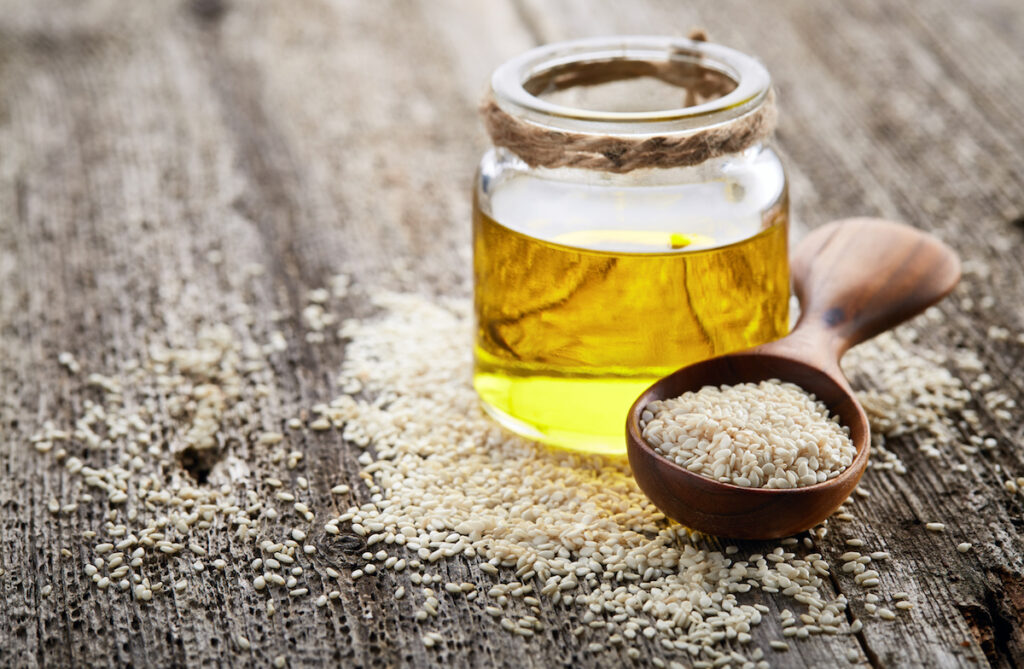Sesame, an agricultural product popular in many tropical countries including Asia, is a typical subsistence crop for farmers in less developed countries such as Sudan. It can grow well and produce a high yield even when there is little rainfall. It is a major rain-fed crop in countries such as Sudan. Sesame is not only used as an important source of cooking vegetable oil but it is also used in making confectionery and Middle Eastern salads such as Tahina (a creamy paste used as an appetizer). Recently, sesame has become a popular ingredient in confectionery, biscuits, and bakeries. Additionally, sesame oil has many curative qualities (in many African countries, sesame oil is used to treat chronic coughs). Furthermore, sesame seeds contain antioxidants that can inhibit the growth and spread of cancerous cells.
In Sudan, traditional camel-driven oil mills are used to press sesame oil, which is widely consumed both locally and abroad. The vast majority of Sudanese eat it as part of their traditional breakfast (beans with sesame oil and bread). It is also used as a dressing for a variety of salads as well. The Sudanese Sesame Oil is used as a medical treatment for a chest infection, cough, joint pains, and other orthopedic soreness as well as skin diseases.
